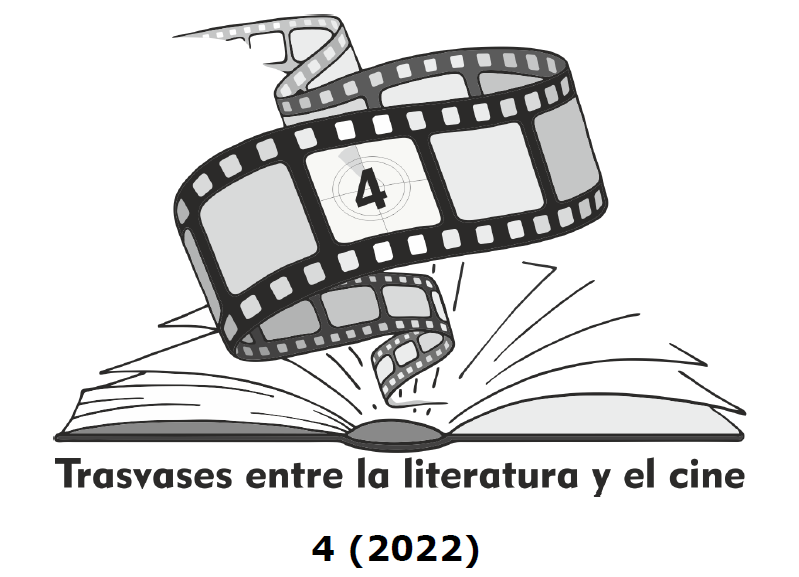Conversations between William Faulkner, Murakami Haruki and Lee Chang-dong: Burning
DOI:
https://doi.org/10.24310/Trasvasestlc.vi4.14052Keywords:
Film Adaptation, Faulkner, Murakami, Lee, Literature, Cinema, Burning, intertextualityAbstract
This article tries to explore some of the mysteries of Burning (2018), an adaptation of the Korean director Lee Chang-dong inspired by the short stories of Murakami Haruki and William Faulkner. At first it demonstrates how different texts (literary or cinematographic ones) may interact with each other, depending on or independently from the original intentions of their creators; then presents productive aspects of analyzing the transition of literature and cinema; and in the third place it offers possibilities of detailed examination of the results of the previously mentioned adaptation process taking into account the filmography and the unique characteristic features of the director as well.
Downloads
Metrics
Publication Facts
Reviewer profiles N/A
Author statements
Indexed in
-
—
- Academic society
- N/A
- Publisher
- Universidad de Málaga
References
ALBÈRA, François (1998) [1996] (ed.), Los formalistas rusos y el cine: la poética del filme, Barcelona, Paidós.
ATAD, Corey (2018), «“There’s Something Clearly Wrong, But We Just Can’t See It, Though It’s Part of Everyday Life”: Lee Changdong on his Haruki Murakami Adaptation, Burning», Filmmaker, s.pág. [En línea: https://filmmakermagazine.com/106207-theressomething-clearly-wrong-but-we-just-cant-see-it-though-itspart-
of-everyday-life-lee-chang-dong-on-his-haruki-murakamiadaptation-burning/. Fecha de consulta: 09/08/2021].
HAVASSY, Gergely (2020), «Égni és égni hagyni», Karakter, s. pág. [En línea: https://ujkarakter.blogspot.com/2020/12/egni-es-egnihagyni.html. Fecha de consulta: 09/08/2021].
FAULKNER, William (2015), «Incendiar establos», en Cuentos reunidos, trad. de M. Martínez-Lage, Barcelona, Debolsillo, págs. 17-37.
MALPARTIDA, Rafael (2011), «El secreto de sus ojos o cómo vivir una vida vacía: de la literatura al cine (Eduardo Sacheri / Juan José Campanella)», Revista de crítica literaria latinoamericana, 73, págs. 353-376.
MALPARTIDA, Rafael (2015), «Subjetividad y adhesión emocional en dos adaptaciones de la novela al cine: La flaqueza del bolchevique y Caníbal, de Manuel Martín Cuenca», Signa, 24, págs. 125-148.
MALPARTIDA, Rafael (2018), «La recepción y el canon de la literatura y el cine: sugestiones y replanteamientos», en R. Malpartida (Coord.) Recepción y canon de la literatura española en el cine, Madrid, Síntesis, págs. 17-53.
MURAKAMI, Haruki (2017), «Quemar graneros», en El elefante desaparece, trad. de F. Cordobés y Y. Ogihara, Barcelona, Tusquets, págs. 141-157.
ORTEGA Y GASSET, José (1925), La deshumanización del arte, Madrid, Revista de Occidente.
STAM, Robert (2014), Teoría y práctica de la adaptación, México, UNAM.
STAM, Robert (2005), «Introduction: Theory and Practice of Adaptation», en R. Stam and A. Raengo, Literature and Film: A Guide to the Theory and Practice of Film Adaptation, Oxford, Blackwell.
TANAKA, Takako (2017), «Postmodernist Views of Two Japanese Writers on Faulkner: Haruki Murakami and Kenji Nakagami», s. pág. [En línea: https://semo.edu/cfs/teaching/17526.html. Fecha de consulta: 09/08/2021].
THRIFT, Matt (2019), «Lee Chang-dong: ‘Today we are living in
Murakami’s world’», Little White Lies, s. pág. [En línea:
https://lwlies.com/interviews/lee-chang-dong-burning/. Fecha
de consulta: 09/08/2021].
VARRÓ, Attila (2019) «The Death of Sunshine: Lee Chang-dong and the Auteur Melodrama», Metropolis. Filmelméleti és filmtörténeti folyóirat, 1, págs. 56-71.
ZECCHI, Barbara (2012), «Introducción. La adaptación multiplicada», en B. Zecchi (Ed.), Teoría y práctica de la adaptación fílmica, Madrid, Editorial Complutense, págs. 19-62.
Downloads
Published
How to Cite
Issue
Section
Categories
License
All authors published in this journal accept the following copyright terms:
a. Authors retain their authors´ rights (copyright) and grant First Publication Rights to the journal, which whill be published under a the Creative Commons Attribution-NonCommercial-ShareAlike 4.0 International (CC BY-NC-SA 4.0) license. All about this license is available in the following link: <http://creativecommons.org/licenses/by-nc-sa/4.0>
b. Authors may separately establish additional agreements for the non-exclusive distribution of the version of the work published in the journal (e.g. including it in an institutional repository, or publishing it in a book) with an acknowledgement of its initial publication in this journal.
c. Authors are allowed and encouraged to disseminate their work electronically (e.g. in institutional repositories or on their own website) as this can lead to productive exchanges, as well as earlier and more extensive citation of published work.
The author is responsible for obtaining permission from the copyright holder when using copyrighted materials.
This electronic journal is published by University of Málaga (UmaEditorial), thus it is necessary to cite the origin of any partial or total reproduction.








22.png)










